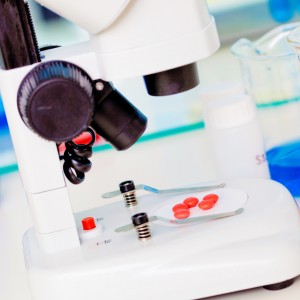 An international research team recently published results of the study “Eribulin, A Drug Originally Developed In Sea Sponges Can Increase Survival In Women With Triple Negative Breast Cancer” in the Journal of Clinical Oncology, whereby they demonstrate eribulin is a well-tolerated and active therapy for women suffering with metastatic breast cancer (MBC) as first, second or third line chemotherapy regimen.
An international research team recently published results of the study “Eribulin, A Drug Originally Developed In Sea Sponges Can Increase Survival In Women With Triple Negative Breast Cancer” in the Journal of Clinical Oncology, whereby they demonstrate eribulin is a well-tolerated and active therapy for women suffering with metastatic breast cancer (MBC) as first, second or third line chemotherapy regimen.
This is the first research study assessing eribulin in the early course of metastatic breast cancer. Lead researchers Dr. Peter Kaufman observed in a news release: “It is of great interest that subset analysis suggests that eribulin may be particularly active and effective in triple negative MBC, which is known to be an aggressive subset of breast cancer, and one associated unfortunately with a particularly poor prognosis overall.”
Eribulin has already been approved in several countries for the third or latter setting of MBC treatment, and it is the only chemotherapeutic agent that actually demonstrates significant benefits for patients with MBC in these later stages of the disease.
This phase III randomized trial, enrolled 1,099 women previously treated with taxane or anthracycline and assigned them to treatment with either capecitabine or eribulin as their 1st, 2nd and 3rd line chemotherapy for advanced MBC. Patients were grouped according to human epidermal growth factor receptor-2 (HER2) status and geographic region. Co-primary endpoints were overall survival and progression-free survival.
[adrotate group=”3″]
“While there is not a statistically significant difference in overall survival with eribulin in comparison to capecitabine, the median overall survival seen with eribulin is in fact numerically slightly superior to that of capecitabine,” noted Dr.Kaufman.
More studies are being prepared to understand the utility of eribulin alone or in combination and its effect on triple negative breast cancer malignancies. “We are additionally planning further research evaluating the role of eribulin in other subtypes of breast cancer, particularly in early stage breast cancer, where this therapy may in fact have a great impact, and improve the cure rate for early stage disease,” Dr. Kaufman added in the press release.

